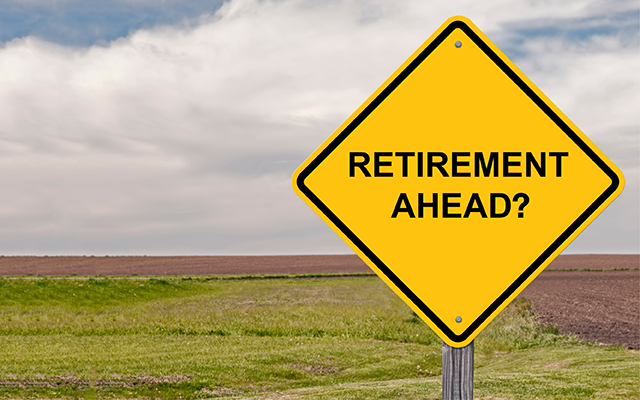Every year around this time, I take a week off to putter around the house, pull some weeds in the garden, catch up on my reading, and bicycle around town with My Lovely Wife. I used to call this “rehearsing for retirement,” but no longer. It’s now more about testing the boundaries between work and play, getting a feel for workdays that blend labor and leisure.
I’ve shifted my thinking for a very good reason:
Retirement can be hazardous to your health.
The latest piece of evidence comes from researchers at Oregon State University, who reviewed data on almost 3,000 retirees and found that those who worked even a year past their retirement age tended to live longer.
“It may not apply to everybody,” lead study author Chenkai Wu said in a statement released by the university, “but we think work brings people a lot of economic and social benefits that could impact the length of their lives.”
It’s hard to disagree with this, and yet when you get to my age there’s an unmistakable, almost gravitational force yanking you toward the mostly implausible notion that you should be able to stop working in the relatively near future and start wandering barefoot on tropical beaches. This is a plausible scenario under certain, very limited, conditions:
- You are independently wealthy
- You are blessed with a generous pension
- You are shoeless and living in a tent somewhere near a tropical beach
Nobody wants to hear this, of course, but the whole retirement concept is a relatively recent anomaly fueled by forces that have been weakening for decades. Before dedicated pensions and social security, most Americans worked until they couldn’t work anymore and then relied on their families to support them in their old age. Today, few retirees can make ends meet on their social security checks and even fewer can lean on pensions or investments — including their fragile 401K accounts.
So what’s a geezer on the cusp of retirement age to do? Keep working, dude — whether full-time, part-time, or freelance — because it’s the only way you’re going to stay mentally engaged and financially solvent. It doesn’t mean you’re giving up on your golden years; it’s just a new chapter, one that can be pretty fulfilling if you play your cards right.
Vacation guru Joe Robinson has suggested that Americans who refuse to take time off work shift their thinking by grabbing a day here and there as part of a mini-vacation strategy. A variation on that theme could apply to “non-retirees” who want to create the kind of fluidity in their daily lives that’s generally not available in the 9-to-5 work world.
For me, that means blending work and play throughout the day, spread across the week.
Time in the office is a valuable opportunity to collaborate with my excellent colleagues, share information, and impart whatever wisdom I can contribute to the cause. But getting away during the day for a bike ride, an afternoon round of golf, or a workout helps to create the sense of freedom retirees covet. And, after many years of shying away from coffee shops, I’ve lately found the caffeine-fuelled cacophony to be conducive to my writing and editing work. At other times, evenings in my upstairs office at home find me at my most productive.
This is not going to work for everyone, obviously. In my line of work, the nomadic office is pretty common and working hours can meander from early mornings to late nights, so my “non-retirement” plan is at least plausible. Construction workers — not so much.
But we can all rethink our assumptions about retirement and explore options that offer some balance between financial security and personal freedom. It may not lead to barefoot walks on the beach of your dreams, but it could keep you healthier and happier here in the real world.

This Post Has 0 Comments